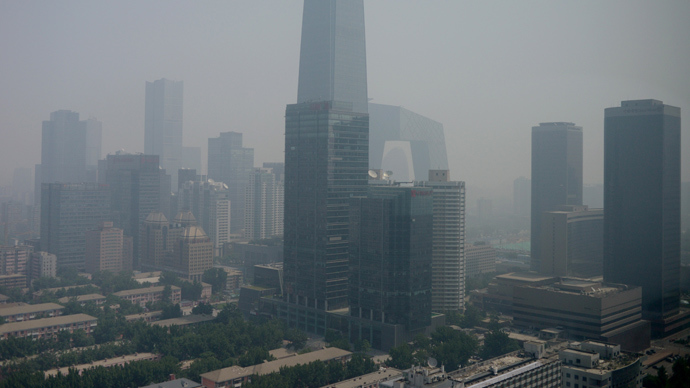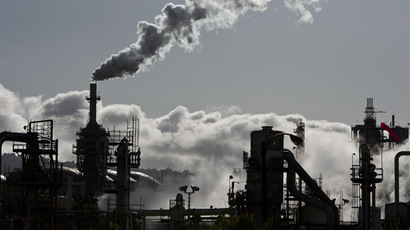8-year-old becomes China’s youngest lung cancer patient, doctors blame pollution

Chinese doctors blame high levels of air pollution, the toxic byproduct of the country’s supercharged economy, for a young girl contracting a deadly disease usually confined to the elderly.
China’s rapid transformation seemingly overnight from a reclusive
Maoist outpost to a modern economic powerhouse has not come
without a high social price, as urban dwellers struggle to cope
with choking smog and deteriorating health conditions.
The depth of the problem hit home on Monday when it was reported
that an eight-year-old Chinese girl, from the eastern province of
Jiangsu, became the country’s youngest person to contract lung
cancer.
The girl, whose name has been withheld by the authorities, lives
near a busy road in the eastern province of Jiangsu, said
Xinhuanet, the website of China's official news agency, AFP
reported.
The Chinese report quoted Jie Fengdong, a doctor at Jiangsu
Cancer Hospital in Nanjing, as saying the young girl had been
exposed to harmful particles and dust over an extended period of
time.
Lung cancer cases among children are rare, with the average age
for people acquiring the disease at about 70 years old, according
to the American Cancer Society. However, as this latest case
appears to show, the demographics of the disease may be changing
with an increased number of younger people becoming infected.
Lung cancer deaths in China, where a shortage of natural gas
supplies keeps it dependent on coal burning, have soared more
than four times over the past three decades, according to
Beijing's Health Ministry. Meanwhile, cancer is now the leading
cause of death in the Chinese capital.
Last month, the northern city of Harbin – a city of some 11
million people with a heavy reliance on coal as a means for
heating – suffered severe smog with air pollutants 50 times the
level recommended by the World Health Organization. Beijing in
January recorded air pollution levels 45 times the WHO level.

The Health Ministry announced it would create a national system
within five years to monitor the long-term impact of chronic air
pollution on human health, state media reported last month.
The monitoring system will collect and examine data on PM2.5, or
particulate matter with a diameter of 2.5 micrometers, in
locations around the country, the report said, citing a ministry
statement.
"The document noted that the absence of a long-term,
systematic monitoring system has prevented the country from
uncovering the link between air pollution and human health,"
Reuters quoted the report as saying.
An international study published in July showed that air
pollution is dramatically cutting short the lives of people in
northern China by about 5 1/2 years, compared to the south.
China is desperate to curb this trend and bring to heel an
overheated economic model that has deteriorated the condition of
much of the country's air, water and soil.
Beijing officials have created a new pollution alert system that
will place limits on driving and prohibit manufacturing and
construction in the event that three consecutive days of
hazardous levels of pollution are forecast for the capital.
While the new measures may be too late for the young girl from
Jiangsu province since she already has cancer, it may help to
extend the lives of other Chinese citizens who are being
adversely affected as the national economy steams forward.














